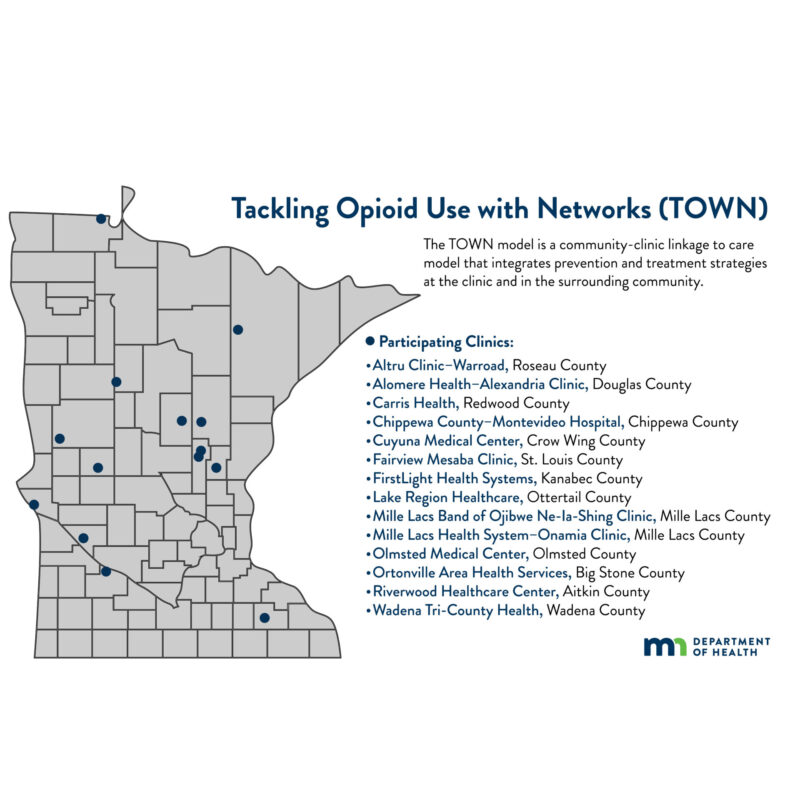Stratis Health has been awarded a four-year $400,000 grant from the Minnesota Department of Health (MDH) to serve as a Technical Assistance (TA) provider for primary care clinics selected to participate in the TOWN (Tackling Overdose with Networks) program.
“Both opioid use and overdose deaths continue rising in rural areas,” said Jennifer Lundblad, Stratis Health president and CEO. “American Indian and Black/African American Minnesotans experience the greatest burden of drug overdose in Minnesota. Moreover, for every drug overdose death, there were 13 nonfatal hospital-treated drug overdoses. The TOWN program provides clinic-level support to prepare teams to better address opioid use disorder (OUD) challenges.”
The MDH grant supports the continuation of TOWN, which began in 2022. It was initially funded by the Bureau of Justice and the Centers for Disease Control and Prevention to reduce the number of chronic opioid prescriptions, increase access to Medication for Opioid Use Disorder (MOUD), and increase community care coordination and prevention efforts. MDH selected six primary care clinics to participate, targeting areas disproportionately affected by the opioid crisis in Minnesota.
“For TOWN to be successful, building block strategies must be used together,” said Randi Callahan, Overdose Prevention Coordinator, Minnesota Department of Health. “As a leader in accomplishing this among care delivery teams, Stratis Health is uniquely qualified to provide evidence-based technical assistance for successfully implementing the TOWN model.”
The Stratis Health TOWN model, centered on equity, has been built with assistance from care teams, community leaders, and people with OUD. Technical assistance is designed to help clinicians and communities understand and treat opioid use disorder as a chronic disease, using harm reduction, stigma reduction, and culturally relevant whole-person care. It is a successful approach to building and improving a model, and Stratis Health has worked collaboratively with program evaluators to measure success objectively.
“Stratis Health has several initiatives in opioid use disorder that strengthen our knowledge and best practices,” said Sue Severson, Stratis Health vice president, business solutions and innovations. “As trusted health improvement and addiction experts, we are co-designing customized support that is valued and relevant to program participants.”
Key to the success is the inclusion of education, open participation access for rural clinicians and their care teams, and sensitivity to rural community and clinician needs in underserved and hard-to-reach patient populations.

